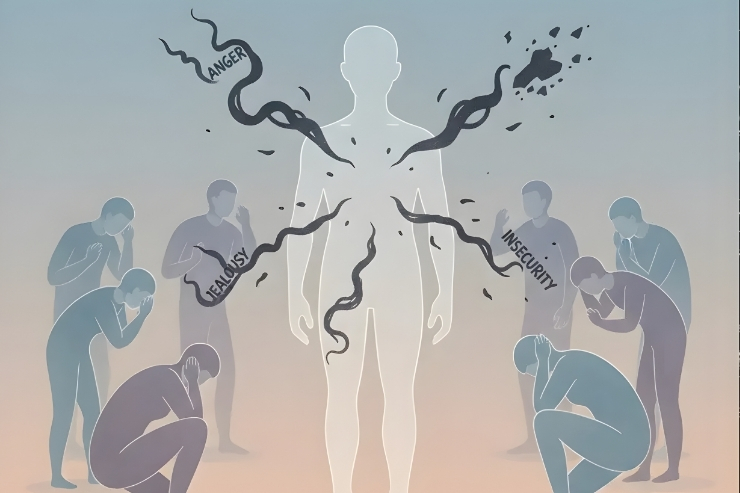Reflection in Psychology: What Is the Meaning of the Concept of Projection?
In the field of psychology, different concepts help to understand human behavior and thoughts. One of these concepts is reflection, or in other words, projection. Projection refers to the process by which individuals attribute their own internal feelings, thoughts, and desires to others. In this blog post, we will examine what projection means, how it works, and how it appears in everyday life.
What Is Projection?
Projection is the act of transferring personal feelings and thoughts onto another person or situation outside oneself. It is a mechanism frequently encountered both in Freud’s psychoanalytic theory and in modern psychology. People direct these feelings and thoughts toward others to avoid confronting their own negative emotions. For example, someone who feels anger or jealousy within themselves may find relief by believing that others possess these feelings instead.
Psychological Foundations of Projection
Projection is one of the self-protective and defensive mechanisms of the individual. There are several fundamental psychological principles behind this concept:
- Defense Mechanisms: This concept, developed by Freud, refers to the ways individuals cope with negative conditions such as stress, anxiety, or internal conflict. Projection is one of these mechanisms and serves as a form of escape to prevent harm to oneself.
- Self-Concept: When people have difficulty accepting their own emotions and thoughts, they may attribute them to others. Through projection, the individual externalizes feelings that have passed through their internal filter.
Examples of Projection in Daily Life
We can see projection appear in various forms in everyday life:
- Projection in Relationships: A person may associate their own insecurities with their partner’s infidelity. That is, while carrying an internal sense of anxiety, they project it onto their partner. Such projection can lead to problems between couples.
- Projection in the Workplace: A manager who is dissatisfied with their team’s performance may project their own inadequacies onto team members. This can negatively affect employee motivation.
- Projection in Friendships: A person may express their own feelings of jealousy or passion by believing that their friends harbor these emotions toward them.
Negative Effects of Projection
Projection can sometimes have negative effects:
- Communication Problems: Negative feelings attributed to others can make communication difficult and damage human relationships.
- Misunderstandings: Projection may cause individuals to misunderstand others, which can lead to conflict.
- Suppression of One’s Own Emotions: By projecting, individuals may suppress their true emotions, leading to emotional difficulties over time.
Ways to Cope with Projection
Recognizing and confronting projection is important for personal growth. Here are some ways to cope with projection:
- Self-Awareness: Recognizing and understanding your own emotions can prevent projection processes. Accepting your feelings helps you build healthier relationships.
- Emotional Communication: Expressing your emotions directly enables healthy communication instead of projecting them onto others.
- Therapy: Professional support from psychologists can be helpful in dealing with projection and other defense mechanisms.
Conclusion
Projection is an effort by individuals to ease their emotional burdens by transferring their inner feelings to others, but this can lead to problems in social relationships. Being aware of projection and learning to manage it helps individuals maintain healthier relationships both with themselves and with their surroundings. By recognizing ourselves and our emotions, we can cope with such defense mechanisms more effectively.



